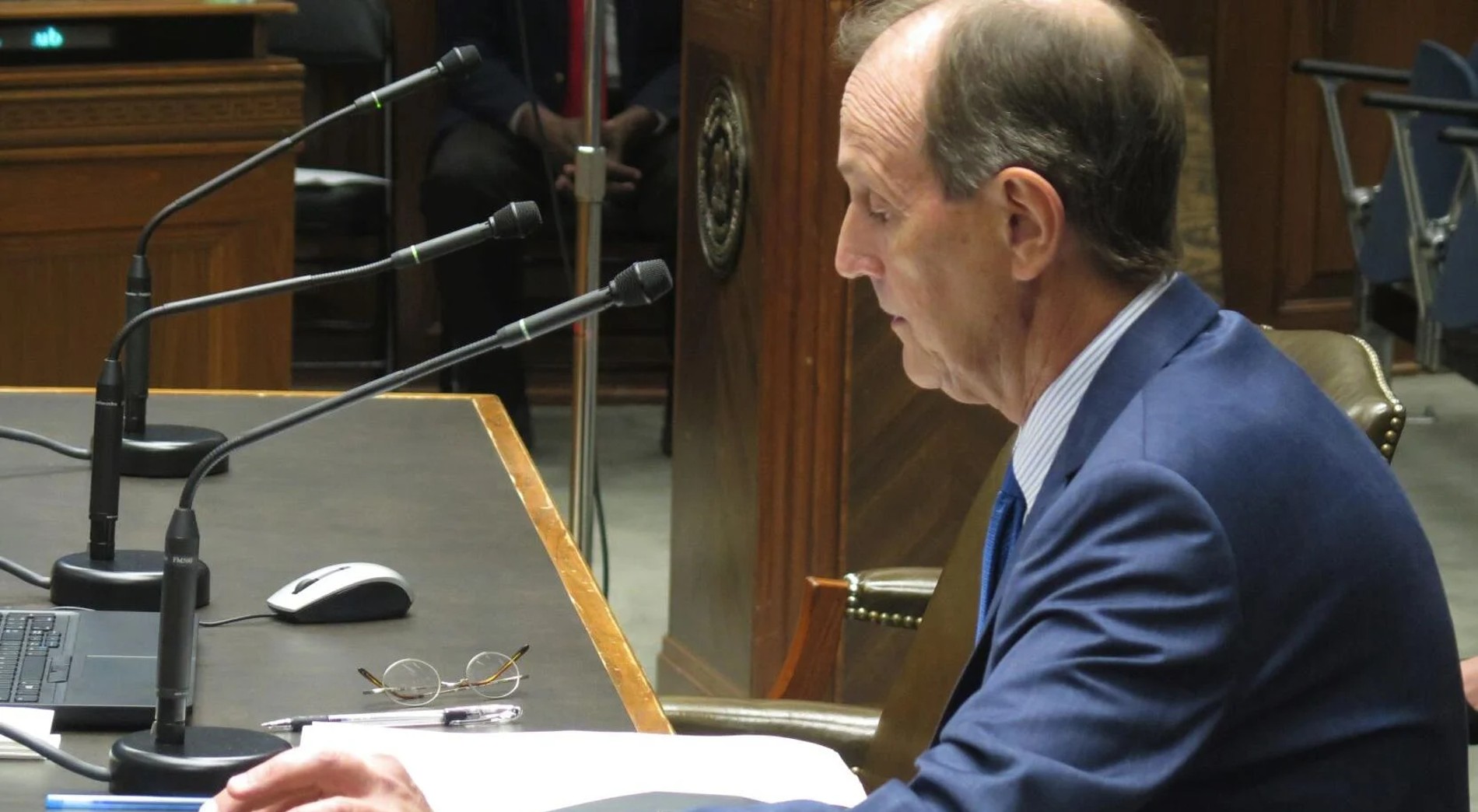OPINION: This article may contain commentary which reflects the author's opinion.
A judge has ruled that Louisiana Supreme Court Justice John Weimer will be allowed to campaign again for his spot on the state’s highest court.
U.S. District Court Judge John deGravelles made the decision to lift the stay that blocked the election for the Supreme Court for the sixth district, The Advocate reported.
“Justice Weimer won in all respects,” his attorney John W. Perry said. “The election will go forward as scheduled.”
The judge’s ruling means that Weimer and any potential challengers can sign up for the race during the July 20-22 qualifying period. The election is on Nov. 8.
DeGravelles’ order also marks a legal defeat for Attorney General Jeff Landry and the state chapter of the NAACP, which secured the stay on May 4. It technically blocked the election of all Supreme Court judges. But because the seven justices run in staggered terms every two years, it most directly affected Weimer, since he is the only justice scheduled to be on the ballot this year.
Weimer, 67, a former college professor at Nicholls State, has said he wanted to seek a third 10-year term. He is the court’s chief justice by virtue of being its senior member, having first won election to the high court in 2001.
Weimer and three sheriffs in his district went to court two weeks ago – filing as private citizens – to overturn the stay.
The lawsuit from the NAACP, which began in 2019, technically prevented the election of all state Supreme Court Justices, but since the elections are staggered it mainly affected Weimer.
It was started because the NAACP said that two of the seven court districts should have a black majority since the state is one-third African American.
This month the Louisiana Supreme Court rejected the state attorney general’s request to enforce abortion ban laws after they were put on hold by an Orleans Civil Court Judge.
“A judge had temporarily blocked enforcement of Louisiana’s “trigger law” banning nearly all abortions last week. The judge placed a temporary stay on enforcement following a lawsuit from abortion providers in the state, who argued it was overly vague,” Fox News reported.
“Thursday’s state Supreme Court ruling allows that stay to remain in place at least through Friday when abortion providers will make their case in court. Louisiana was the first state to have its abortion bans challenged after the Supreme Court overturned Roe v Wade in late June. It is not the only one, however, as Texas and Kentucky have faced similar issues,” the outlet added.
Louisiana Supreme Court says abortions must remain legal for now, despite 'trigger law' https://t.co/yY8JO5DHZl
— Fox News (@FoxNews) July 7, 2022
Earlier this week, the Kentucky Supreme Court denied the state attorney general’s emergency appeal to have a near-total abortion ban reinstated after it was blocked by a circuit court judge last week.
After the U.S. Supreme Court overturned Roe v. Wade last month, it triggered a Kentucky law, the Human Life Protection Act, that bans all abortions except any performed to save a mother’s life or prevent her serious injury.
The American Civil Liberties Union filed a lawsuit on behalf of abortion providers in Kentucky, claiming the abortion law in the state “unconstitutionally forces women to remain pregnant against their will.”
It came after a Florida judge temporarily blocked a new 15-week abortion ban days after it took effect in the state.
However, a state appeal means the court’s order has automatically been stayed, keeping the law in place for the time being.
“In a lengthy ruling issued Tuesday, Leon County Circuit Court Judge John Cooper stated that the recent Supreme Court decision in Dobbs v. Jackson Women’s Health Organization – which overturned Roe v. Wade – has no bearing on this case. That is because while Roe was based on the idea of a right to privacy that is not explicitly in the Constitution, the Florida state constitution specifically does include a right to privacy,” Fox News reported.
“The right to privacy under the Florida Constitution is ‘much broader in scope’ than any privacy right under the United States Constitution,” Cooper wrote.
“Cooper cited other past cases, including a 2003 Florida Supreme Court case that said it would be wrong to compare federal and Florida privacy rights ‘in light of the fact that there is no express federal right of privacy clause.’ As a result of the state right is expressly written into the state constitution, Cooper said there is a higher level of scrutiny, and that ‘any law that implicates the fundamental right of privacy is … presumed to be unconstitutional,'” the Fox report added.
